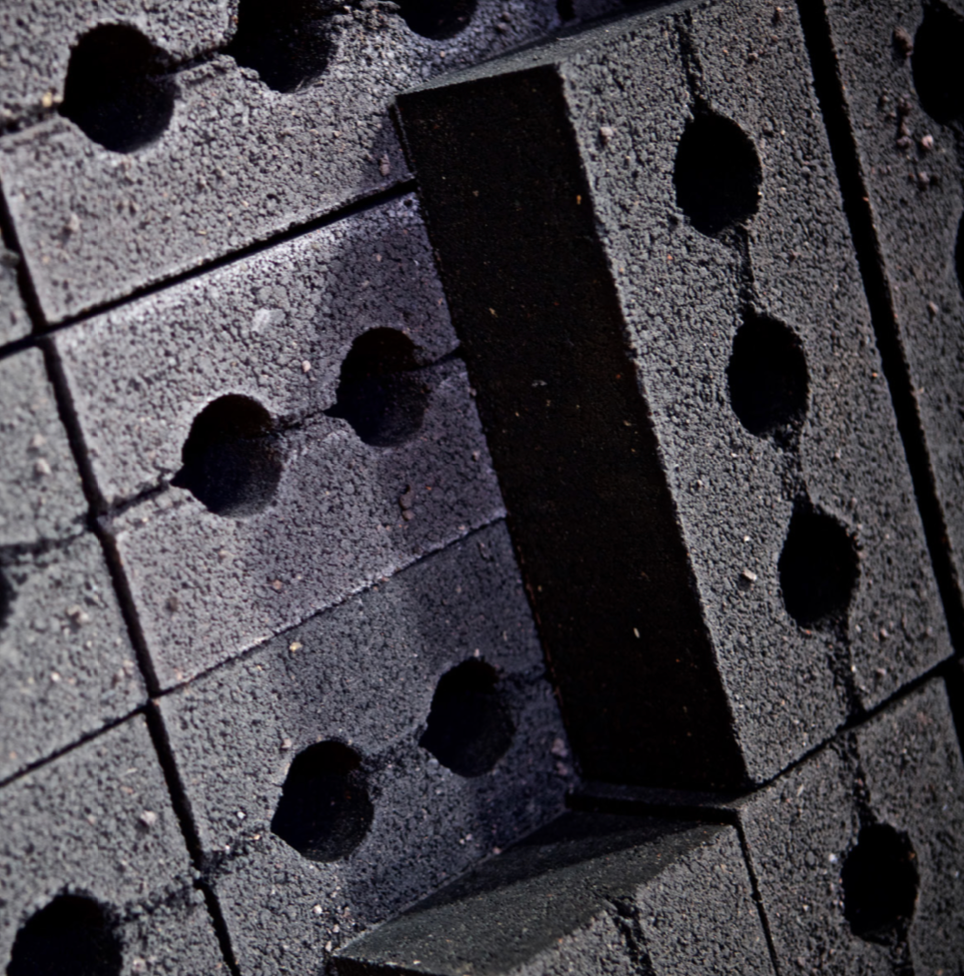Kenoteq, a clean-tech spin-out from Heriot-Watt University, has been awarded £1 million in funding by Zero Waste Scotland to commercialise production of its revolutionary brick made of recycled construction waste, the K-Briq, to more than two million bricks per year.

Image Credit: Kenoteq
The unique, multi award-winning K-Briq™ is made from over 90% recycled demolition and construction waste materials. It produces a tenth of the CO2 emissions of a traditional fired brick and requires less than a tenth of the energy in its manufacture.
The Circular Economy Investment Fund, administered by Zero Waste Scotland with funding from the European Regional Development Fund and the Scottish Government, offers investment for SMEs based in Scotland and supports innovative work that will deliver circular economy growth.
By re-using valuable recycled materials from construction and demolition waste, Kenoteq has achieved a circular-economy exemplar and will lead the delivery of a circular economy revolution for the construction sector.
The funding will allow the company to create 15 new jobs over the next 5 years in manufacturing, production, quality assurance, marketing and sales roles. By scaling production, Kenoteq will enable the construction industry to deliver the equivalent of 924 low carbon homes over a five-year period.
Sam Chapman, Managing Director, Kenoteq said: “The construction industry faces a tremendous challenge when meeting decarbonisation goals. The industry sends over 800 million tonnes of waste to landfill in Europe every year[1], at a huge cost to itself and the environment. In the UK, construction and the built environment accounts for approximately 50 percent of all waste generated in Scotland[2].
“The K-Briq presents an opportunity for the construction sector to reduce landfill, limit reliance on finite resources and take advantage of waste materials to create a more sustainable and ecologically viable built environment. The K-Briq slashes energy use, both in its manufacturing process and also once in use as it has double the insulation properties of existing bricks and blocks. By using recycled pigments, it can be made in a range of colours providing flexibility to architects and design planners.
“With this funding, we will scale the manufacturing capacity from a pilot plant to industrial-scale production through development of a new manufacturing line in Scotland. We will then create a template for the provision of production systems to selected waste handling partners across Scotland and the UK.”
Iain Gulland, chief executive at Zero Waste Scotland continued: “Kenoteq’s innovation aligns perfectly with our goal of supporting Scotland’s circular economy by using products and resources responsibly. The current ‘take, make, dispose’ approach is unsustainable.
“Construction relies heavily on finite resources and presents huge potential for circular economy interventions to reduce demand for, and waste of, virgin materials. Innovations like the K-Briq can help to tackle climate change, deliver a more competitive Scottish economy, mitigating resource security and addressing the subject of corporate social responsibility within the sector.
“As nations around the world commit to building a greener future, the K-Briq presents an achievable solution for one of the construction industry’s greatest challenges. Kenoteq is an excellent example of the abundant pioneering innovation in Scotland which can help to place us at the forefront of the global circular economy frontier.”
The K-Briq was conceived by Professor Gabriela Medero from Heriot-Watt University following more than a decade of research and development into creating innovative, low-carbon products from recycled construction waste. Professor Medero is co-founder and technical director of Kenoteq, which launched in January 2020.
The Circular Economy Investment Fund is part of Zero Waste Scotland’s Resource Efficient Circular Economy Accelerator Programme, which will invest £73m in circular economy and resource efficiency projects, thanks to support from the European Regional Development Fund (ERDF).
References
- Eurostat https://ec.europa.eu/eurostat/statistics-explained/index.php/Waste_statistics#Total_waste_generation
- Source Scottish Government’s circular economy strategy, Making Things Last